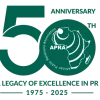
As delegates to the annual Africa Public Relations Association (APRA 2019) conference in Rwanda, we touched down in Kigali after 11:00 pm on Monday, May 13, 2019 on board Rwandair. Personally, I was quite expectant in view of the stories I had heard about the country regarding its cleanliness and the fact that they do not entertain plastics, a fact which compelled me to send my pepper sauce, “shito”, to Nkulenu Industries in Madina, Accra, to be canned.
For seven days in the capital, Kigali, we indeed witnessed the Rwandan story and lived its experience. At the hotel, I realized the housekeeper who sent my luggage to my room had left my door ajar, so I exclaimed, “Please, mosquitoes will enter the room!” His quick response was, “There are no mosquitoes here”, as if to ask me, “Don’t you know our city is the cleanest in Africa?”
You could really see awe-inspiring things happening there. You cannot believe that a country which was literally reduced to ashes through genocide or deliberately planned extermination of over a million Tutsis and moderate Hutus, could within 25 years, get up on their feet and do such amazing stuff, especially their unparalleled cleanliness. Is it not a sad commentary that Rwanda has a National Carrier with a fleet of 12 planes but Ghana does not have any? A classmate of mine, who is a retired General of the Ghana Armed Forces, described Rwanda as the Singapore of Africa, and I think that is an apt description of what we saw.
Throughout the period, I did not set eyes on heaped refuse or anything close to it, not even in a local market at Chimirongo, where clothes, footwears, fish, meat, plastics, fruits and vegetables are sold.
We did not find filth outside the market either, only the visible signs that the place had just been swept clean. We could actually see a bunch of broom lying on the floor and wheelbarrows being packed into a certain receptacle by cleaners. Gutters were unimaginably squeaky clean, unlike what we find in our capital, Accra, and elsewhere in Ghana. All you find as you are driven along the streets are greeneries. Lawns are consciously well kept, hedges properly and beautifully trimmed, and trees deliberately planted. It is just incredible. Even in a suburb compared to say Mamprobi or Kaneshie, you could never find filth, no matter how hard you try. It takes five days, and sometimes three, to obtain a land title certificate. Ghana, where did we go wrong?
“OKADA”
They also have their own version of commercial motor bikes, “okada” which they call “moto”. The rider of the “moto” is called “motari”, but they are well regulated with uniforms of red, green and yellow depending on the Cooperative a “motari” belongs to. Every “motari”, I mean every “motari”, carries two helmets, end of discussion! Not carrying two helmets is tantamount to a driver not wearing a seatbelt which attracts sanctions. I was told if a “motari” carries only one helmet, it is assumed that he is not working. This pictures shows me sitting behind a “moto” from CHIC, a popular shopping mall.

If you dare carry a passenger as a “motari” without a second helmet, you can be certain that your bike will be seized by the dutiful green coat Rwandan police whose job is to enforce traffic rules and regulations. Once seized, your bike will be released to you only after paying the mandatory fine which will, of course, be receipted. In fact, a female colleague from Ghana Water Company and I made the “moto” our preferred mode of transport after the conference, even though I have never patronized “okada” in Ghana.
This was because, the “moto” was far cheaper and as safe as a taxi due to the discipline with which they operated. No “motari” would jump a red light. A “motari” could charge as low as 300 Rwandan franc which is about GHC 1.70p. The highest fare we paid for a “moto” was 500 Rwandan franc, about GHC 2.90p, from a place close to our hotel called Hotel 2000 to Kigali Heights, near the Kigali Convention Centre, which is another miracle of the Paul Kagame government.
According to a staff of the Kigali Convention Centre, who graciously drove us from the Centre to town, an amount of 300 million US Dollars was invested in the Convention Centre two years ago, but they have started making profits now. Can you believe that? All kinds of conferences, gatherings and meetings are held at the Centre. Even our APRA conference was to be held there, but coincided with another conference to be attended by the Rwandan president.
Back to my “motari” story, you could actually find a “motari” at every turn of a corner. I am not by this suggesting, even remotely, that “okada” should be legalized or regularized in Ghana, because the “motaris” operate in a different cultural milieu, and again, I do not have the power to make such a proposal. What is working for them in Rwanda may not necessarily work for us in Ghana.
I never saw hawkers in Kigali, except newspaper vendors, neither did I find “pure water” sellers. You are given paper bags at the supermarkets or wherever you shop. No polythene bags. O REMARKABLE Rwanda!
